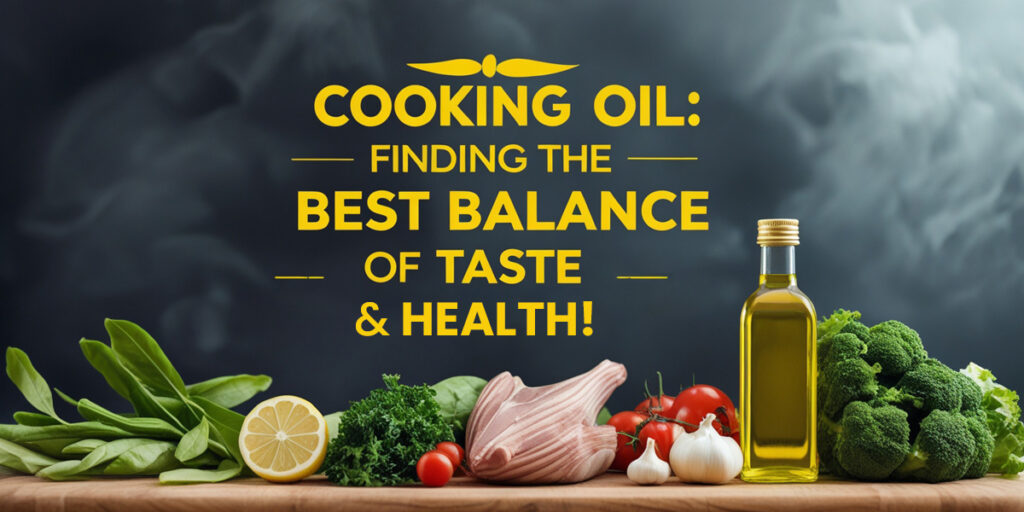When it comes to cooking, the oil you choose plays a significant role in the final dish. Not only does it enhance flavor and texture, but it can also contribute to your overall health. In today’s health-conscious world, the selection of cooking oil has become more than just a culinary choice; it’s about balancing taste with nutrition.
Flavor Enhancement: The Taste Factor
Cooking oils are integral to creating rich, complex flavors in dishes. Whether you’re sautéing vegetables, frying, or dressing a salad, the right oil can elevate the taste. For instance:
- Olive oil provides a fruity, slightly peppery flavor, perfect for Mediterranean dishes or drizzling over roasted vegetables.
- Coconut oil offers a subtle sweetness and tropical aroma, making it a favorite for baking and Asian-inspired recipes.
- Butter brings a creamy richness and indulgence to both savory and sweet dishes, though it’s not as heart-healthy as plant-based oils.
Choosing the right oil for your dish can make the difference between a flat-tasting meal and one that bursts with flavor.
Health Benefits: The Nutritional Factor
Not all oils are created equal. While some oils are packed with nutrients, others may have negative effects on health if used in excess. Here’s how different oils stack up nutritionally:
- Olive oil is rich in monounsaturated fats and antioxidants, promoting heart health and reducing inflammation.
- Canola oil is lower in saturated fats and contains omega-3 fatty acids, making it a good choice for cardiovascular health.
- Avocado oil is high in healthy fats and vitamin E, supporting skin health and cholesterol management.
Choosing the Right Oil for Different Cooking Methods
Cooking oils have different smoking points, which affect their stability at high temperatures. Here’s a quick guide:
- High Smoke Point: Oils like avocado oil, peanut oil, and grapeseed oil are best for frying or stir-frying since they won’t break down at high temperatures.
- Medium Smoke Point: Canola oil, sunflower oil, and corn oil are great for sautéing or baking.
- Low Smoke Point: Extra virgin olive oil and butter should be used for drizzling or in recipes that don’t require high heat.
Using oils with appropriate smoke points ensures that they remain stable during cooking and do not release harmful compounds.
Moderation is Key: Finding the Balance
While oils can contribute to a healthy diet, moderation is essential. Oils are calorie-dense, so even healthy fats should be consumed in appropriate amounts. A balanced diet, combined with regular physical activity, is the best approach for long-term health.
In summary, cooking oils offer a delicate balance between flavor and health benefits. By selecting the right oil for your cooking method and understanding its nutritional properties, you can enjoy delicious meals while supporting your well-being. So, the next time you reach for the oil bottle, consider the taste and the health benefits of your choice—your body and your palate will thank you!
Aap Ka Bazar®, a monthly grocery app, website, and chain of stores, has gathered this information, including nutritional values, through online research and writing tools. #yahasabmilega



